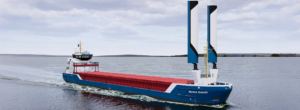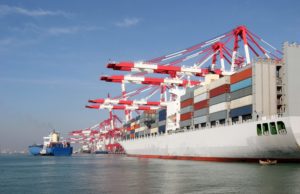The Royal Belgian Shipowners’ Association (KBRV) emphasizes the legal ambiguities and complexities of compliance responsibilities in the EU’s Emissions Trading System (EU ETS) and FuelEU Maritime regulations, warning of uncertainty and contractual risks for shipowners, operators and charterers.
The latest position paper by Belgian shipowners shows implementation challenges of EU ETS and FuelEU Maritime and complexities of compliance responsibilities.
The integration of shipping into the EU ETS poses significant challenges in defining and operationalizing the role of the responsible entity.
According to KBRV analysis, this emphasizes the need for “clear, upfront agreements” regarding duties and vessel specifications to avoid disputes, illustrating the careful balance needed to manage long-term contracts within the EU ETS framework successfully.
The establishment of standardized clauses and contracts becomes essential, KBRV reports.
“It is vital that the shipping industry first understands the principles of the EU ETS so that they can better interpret which party should bear the compliance burden,” explains KBRV’s head of legal affairs, Shipping Policy & Security, Elle De Soomer. “While the inclusion of maritime in the Emission Trading System presents a significant shift towards better accountability and environmental responsibility in the industry, our analysis finds that there are significant complexities in the definition of the responsible entity.
“One example is the stipulation that the responsible entity must be the same for EU MRV and EU ETS where this is not always the case. Another is the challenges of applying the “polluter pays” principle across EU member states where each has its unique legal framework.”
As for FuelEU Maritime, companies are currently hesitant to prepare for it due to the absence of definitive legislative texts and unclear regulatory intentions. The head of Environmental & Technical Affairs, Celine Audenaerdt states:
“There have been efforts to anticipate changes by integrating broad clauses into customer contracts, yet substantial education and discussions are needed. All of which depend on the final legislation.
“Additionally, a specific BIMCO clause is not yet available, and fuel certification rules, especially for fuels produced outside the EU, remain undefined. This uncertainty complicates industry readiness for the 2025 FuelEU implementation, challenging the notion that the industry can adapt in time without clear regulations and certification processes. The industry’s ability to make billions in investments hinges on having these elements in place.”
The KBRV paper highlights the importance on clarifying enforcement mechanisms, particularly in relation to the ‘polluter pays’ principle, as the path to greener maritime practices does not only depends on regulatory adjustments.
The paper also provides strategies for navigating the regulatory environment and offers recommendations to achieve compliance.
“Addressing these challenges requires a concerted effort by Member States to ensure that the transition to environmentally sustainable shipping practices does not unduly burden those committed to leading the change,” it is added.
To download a copy of the position paper “Charting Uncertain Seas: Legal Ambiguities and Compliance Strategies in EU ETS and FuelEU Maritime Regulations”, click here.



